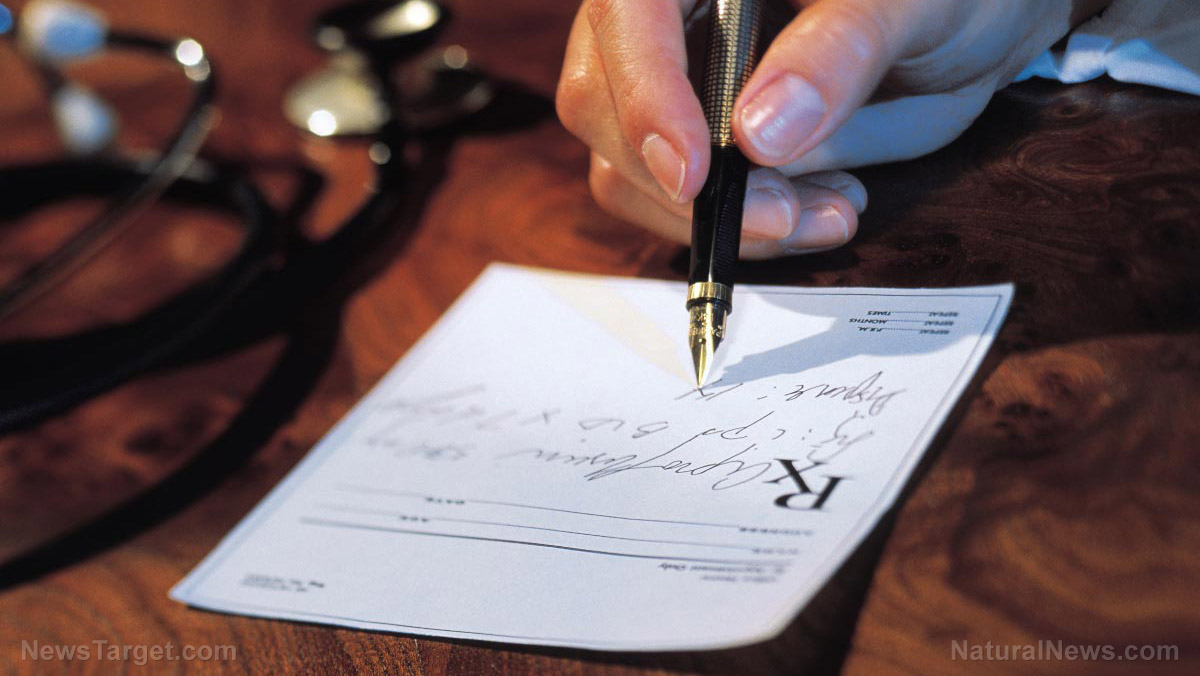The end of food freedom? Future food services may control what you eat by stocking food prescribed by doctors via smart appliances
03/22/2018 / By Tracey Watson

There is no doubt that some of us make incredibly poor decisions when it comes to the food we eat. From processed “box” meals to plenty of junk food, it is probably true to say that the American diet is one of the worst in the world. And this lack of nutrition has become especially apparent in recent years with the increase in the number of people with obesity, type 2 diabetes, heart disease and other lifestyle related illnesses.
Nonetheless, while many of us could probably use some guidance and assistance in making healthier food choices, very few of us would like the right to choose what we eat taken away from us entirely. And yet, that is exactly what the future may hold, according to Hewlett Packard’s magazine, Enterprise.
The magazine claims that technology should be utilized to “help us eat better,” and says that the time is coming very soon when doctors will write out food prescriptions to be delivered to our doors via a food service, cooked by your “smart” stove and restocked by your “smart” refrigerator.
The theory behind the need for this technological “advance” is that people are just too busy to cook healthy food, and would therefore rather buy inexpensive, ready-prepared junk food.
As The New Yorker magazine reported:
Fast food has become a synonym for bad food. Yet, the industrial farm system that has made it possible for McDonald’s and many other chains to sell cheeseburgers for a dollar has also enabled Americans to spend a smaller percentage of their income on food than people do in any other country.
The power of the elements: Discover Colloidal Silver Mouthwash with quality, natural ingredients like Sangre de Drago sap, black walnut hulls, menthol crystals and more. Zero artificial sweeteners, colors or alcohol. Learn more at the Health Ranger Store and help support this news site.
And that, claims Enterprise, is where online ordering and smart technology can save the day.
Since online food delivery services cut out the “middle man,” they are often considerably cheaper. They also only deliver the ingredients in the exact amount needed for a specific meal or meals, which can cut down on costs.
But some feel that this model could be taken a step further with the introduction of prescription food services.
Enterprise explains the concept as follows:
Soon your doctor will prescribe more than medicine to get you healthy and keep you that way. That means prescribing technology to help you monitor your condition and maintain your wellness. By this point, the doctor has also diagnosed any conditions you might have and has prescribed a meal plan for you. Food will be delivered and cooked for you with a lot less effort than previously.
Your obedient compliance to this “prescription” will then be monitored by “prescribed medical wearables or other devices,” which will report back directly to your doctor via smart apps. The article even claims quite proudly, though it’s hard to see why, that there may be devices that will analyze your bodily excretions and scan your internal organs – always reporting back to your doctor, of course.
There are several problems with this whole scenario, the most glaring being the fact that the doctors who would be writing these “food prescriptions” receive virtually no training regarding nutrition in medical school. Many of them still believe in the debunked carbohydrate-loaded food pyramid, and have no knowledge about the dangers of sugar, how polyphenols, antioxidants, etc., can stave off disease, or any of the really important facts regarding true disease prevention. (Related: Discover what really matters at Nutrients.news.)
How would they be in the best position, then, to dictate and control the food their patients eat? (Related: Texas – Is medical freedom in jeopardy?)
Another issue is the fact that much of the feedback to the patient and their doctor would be via smart trackers, which have had very mixed reviews, with some people swearing by them, while others insist that these devices destroy existing healthy habits.
At the end of the day, human nature is such that being forced to do something usually doesn’t work out well, right? After all, if we really want to lose weight and be healthy, we’ll do it. And if we don’t, no amount of prescribing, delivering, “smart cooking” or smart app monitoring will make a jot of difference.
Sources include:
Tagged Under: disease prevention, doctors, food freedom, food prescriptions, food supply, health freedom, Liberty, nutrition, privacy watch, smart appliances, smart devices, surveillance




















